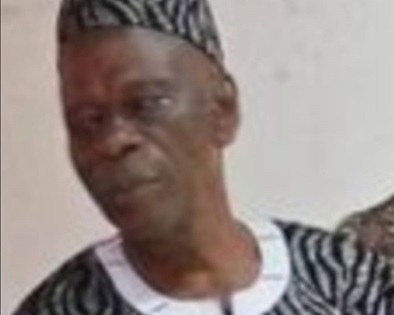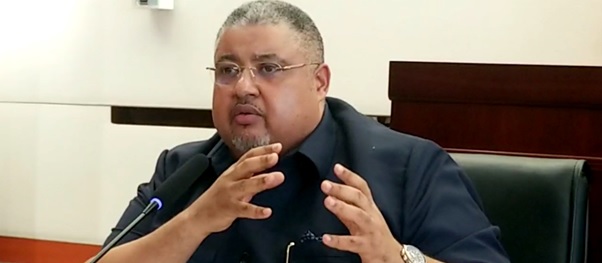MONROVIA, LIBERIA – The Boakai administration’s recent announcement of procuring 285 caterpillars for infrastructure development has sparked significant controversy. Madam Mamaka Bility, Minister of State Without Portfolio, revealed this news on Friday, May 24, during the three-day Cabinet Retreat held at the EJS Ministerial Complex in Monrovia. However, this announcement has been met with skepticism and criticism, particularly from Samuel Jackson, a prominent economist and politician.
Jackson has labeled the procurement as a “big scam” and questioned the decision-making process behind it. He expressed concerns over the quality and longevity of the equipment, specifically questioning the choice of “cheap Chinese equipment” over more reliable brands like John Deere and Caterpillar. “Who decided to bring in cheap Chinese equipment? We want machines that can last 30 years. John Deere. Caterpillar!” Jackson questioned, targeting the Public Procurement Concession Commission (PPCC) for answers.
In a statement, Jackson didn’t mince words, calling the procurement of the 285 road-building machines a “fraud” and a “willful disregard of public procurement procedures.” He argued that the deal did not adhere to established rules and seemed designed to deceive the Liberian public. Drawing on personal anecdotes, Jackson underscored his point with wisdom passed down from his mother, a Fanti Bassa woman who, despite being illiterate, had the common sense to know when something was too good to be true.
Jackson raised several critical questions: Is the procurement a loan or a gift? Who is the grantor or creditor, and what are the terms if it is a loan? He also questioned the rationale behind the distribution of the machines, suggesting that a uniform allocation of 19 machines per county, regardless of population size or infrastructure needs, was illogical. “So Rivercess, my mother’s county, a small county of about 50,000 people, will get the same number of equipment as large counties like Nimba, Bong, and Lofa?” he asked, calling the allocation “arrant stupidity.”
“285 pieces of Equipment. Are they in the budget? Which Ministry or Agency?” he demanded. Furthermore, Jackson criticized the involvement of Robert Gumede, a South African millionaire with alleged ties to corruption and illegal financing in Zimbabwe. He questioned Gumede’s motives and whether his participation in the deal was a form of disguised bribery. Jackson also demanded transparency about the specifications and needs analysis for the equipment, the training and maintenance plans, and the detailed project documentation.
Despite Jackson’s vehement opposition, his stance has not been universally accepted. Papie Savior Kollie Jr. criticized Jackson’s statements as “cheap propaganda,” arguing that any development, even with “cheap Chinese” machines, was better than none. Kollie implored Jackson to allow the Liberian people to enjoy the benefits of the new equipment without interference.
Gabriel Williams echoed this sentiment, comparing the current administration’s efforts favorably against the previous government’s perceived failures. He emphasized that the equipment would benefit the people and expressed hope that those responsible for past misdeeds would eventually be held accountable.
Henry P. Costa, another vocal critic of Jackson, called his remarks “cheap and lazy politics” and expressed disappointment. Costa argued that any positive development for Liberia should be celebrated, regardless of its origin. He praised the procurement of the machines, seeing them as a tangible benefit for the people.
Meanwhile, Representative Musa Hassan Bility of District #7, Nimba County, commended the government for the procurement. He described the news as “welcoming” and urged all Liberians to embrace it. Bility highlighted the dire state of the country’s roads and the suffering of the people, noting that the legislature had given the president the latitude to undertake such projects under the 2024 budget’s “presidential projects” line item. He called for the transparent and equitable implementation of the project.
As the debate continues, it remains to be seen how the Boakai administration will address the concerns raised by Jackson and others. The controversy underscores the need for transparency and accountability in government procurement processes, particularly for projects of such significant scale and impact on the nation’s infrastructure development.
The procurement of 285 road-building machines is a critical move that could transform Liberia’s infrastructure landscape. Still, the administration must navigate the storm of skepticism and ensure that the process is above board and beneficial to all Liberians. Only time will reveal the true nature of this contentious deal and whether it will meet the high expectations set by its proponents or validate the concerns of its detractors.







